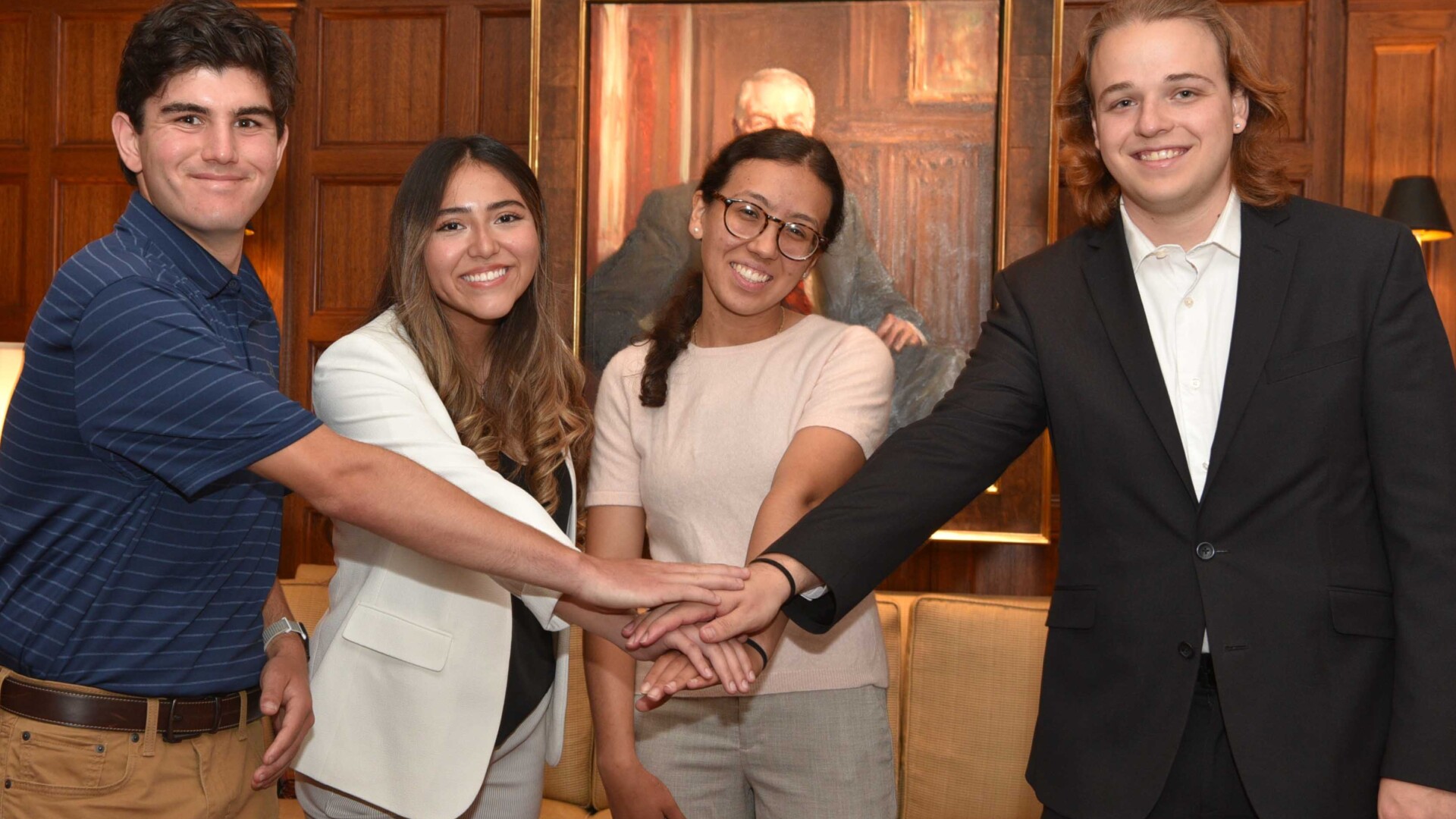
2024. 08. 18-20
ACS Fall 2024 Denver2024 CME NASA Symposium and Earth & Space Sustainability Summit
Sponsored by POLY




CME NASA Symposium




2024 ACS Global Outstanding Student & Mentor Awards in Polymer Science and Engineering, Abstracts and Award Presentation
Date: August 18, 2024
Time: 3:00 – 5:30 pm
Location: Hotel Sheraton Downtown Denver
Program: POLY 006B – 7th Annual CME NASA Symposium, Day 1, Afternoon Session
Registration: www.acs.org
The awards include $7,500 for each student winner. Plaques will be given to both the students and mentors.
The purpose of the ACS Global Outstanding Graduate Student and Mentor Award is to disseminate globally the latest knowledge of polymer research and to recognize at the ACS National Meeting not just two winning students, one from the USA and one from anywhere in the world, but also their mentors. Sponsored by Chemical Marketing & Economics, Inc. (CME), the awards, which are co-organized by CME and the Polymeric Materials: Science and Engineering (PMSE) Division of the American Chemical Society, recognize graduate students within one year of graduation or a recent graduate who has completed an outstanding thesis in polymer research accepted by a university during the three-year period prior to January 1 of the award year. PMSE and CME are proud to announce this year’s winners:
USA Team
Student: Pamela Cai, Stanford University
Mentor: Andrew Spacowitz, Stanford University
International Team
Student: Laura Rijns, Eindhoven University of Technology (TU/e)
Mentor: Patricia Dankers, Eindhoven University of Technology (TU/e)
Abstract Title: Polymer physics driven design and understanding of biological materials
Biopolymers, from engineered hydrogels to natural biological materials like mucus and DNA, play a large role in our lives. Many of these biopolymer-based materials contain dynamic bonds, further complicating the determination of structure-property relationships. Theoretical models of polymer physics paired with experimental synthesis and characterization of dynamically associating biopolymers have the power to direct design of new polymeric materials and elucidate essential physics driving function in biological fluids.
Dr. Pamela Cai is a postdoctoral fellow at the University of Chicago Pritzker School of Molecular Engineering with Prof. Matthew Tirrell. She received her PhD in Chemical Engineering from Stanford University (2023) under the guidance of Profs. Andrew Spakowitz and Sarah Heilshorn. She obtained her B.S. in Chemical Engineering from MIT (2016). Dr. Cai has received many accolades, including the National Science Foundation Graduate Research Fellowship and the Frank J. Padden Jr. Award for Excellence in Polymer Physics Research.
Abstract Title: Active DNA Olympic Hydrogels Modulated by Topoisomerase Activity
Biological systems are equipped with a diverse repertoire of proteins that regulate DNA topology with precision that is beyond the reach of conventional polymer chemistry. We harness the unique properties of topoisomerases to synthesize Olympic hydrogels formed by topologically interlinked DNA rings. Using dynamic light scattering microrheology to probe the viscoelasticity of DNA topological networks, we show that topoisomerase II enables the facile preparation of active, ATP-driven Olympic hydrogels that can be switched between liquid and solid states on demand.
Andrew Spakowitz received his BS in Chemical Engineering from the University of Wisconsin – Madison in 1999 and PhD in Chemical Engineering at the California Institute of Technology in 2004. He was a postdoctoral scholar in Molecular and Cellular Biology at the University of California, Berkeley from 2004 to 2006. Andrew Spakowitz joined the Department of Chemical Engineering at Stanford as an Assistant Professor in August 2006. Professor Spakowitz currently serves as the Tang Family Foundation Chair of Chemical Engineering. He is mentor of CME PMSE awardee Dr. Pamela Cai.
Abstract Title: Design Rules for Supramolecular Hydrogel-Cell Interactions: From Growing Tissue towards Bio-Electronic Applications
Polymeric biomaterials are increasingly being used as extracellular matrix (ECM) mimics to grow cells into functional tissue. Current materials lack orthogonal control over properties across different length scales. Therefore, we developed supramolecular hydrogels as ECM mimics which allow for orthogonally tunable properties at the nano- and macroscale. Design principles are proposed to control cell-material interactions. These guidelines can be utilized to grow complex living tissue in a controlled, synthetic manner for tissue engineering applications, but also to advance bio-electronics.
Dr. Laura Rijns was born in the Netherlands (1996) and received her PhD in Biomedical Engineering (2023) “cum laude” from Eindhoven University of Technology under guidance of prof. Patricia Dankers and prof. E.W. (Bert) Meijer. Supramolecular hydrogels as mimics of the extracellular matrix for culturing cells were developed. She was awarded the Materials-Driven Regeneration Young Talent Award 2021. Currently, Laura is pursuing her postdoc as a Niels Stensen Fellow at Stanford University with prof. Zhenan Bao, focused on soft bio-electronics.
Abstract Title: Complex tissue-inspired materials based on supramolecular polymers
The integration of synthetic components into biological systems will shape the future of regenerative medicine and drug delivery. In nature, tissues and cells are formed by complex, intricated molecular compositions held together by both covalent and directed non-covalent interactions. They can be regarded as complex molecular systems. The formulation of an artificial extracellular matrix from synthetic building blocks that can assemble and disassemble into supramolecular polymers on demand is proposed to lead to complex tissue-inspired materials.
Patricia Dankers is professor in Biomedical Materials & Chemistry at TU/e. She studied chemistry in Nijmegen, The Netherlands. Her PhD studies in chemistry were performed at TU/e in the group of prof. E.W. (Bert) Meijer (2006). She worked for SupraPolix, and the University Medical Center Groningen. Her second PhD thesis work was performed in medical sciences in Groningen (2013). She worked at Northwestern University, Chicago, USA (2010). She is a co-founder of the spin-off companies UPyTher (2020) and VivArt-X (2022).